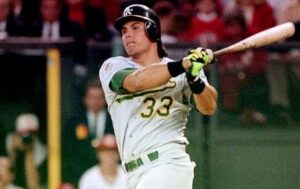Honoring those who make freedom possible
On Veterans Day in 1961— exactly one month before the beginning of the Vietnam War — President John F. Kennedy spoke at Arlington Cemetery to honor the U.S. veterans who fought to preserve freedom and to make peace possible. Excerpts from that speech by President John F. Kennedy at Arlington Cemetery on Veterans Day, 1961:
“In a world tormented by tension and the possibilities of conflict, we meet in a quiet commemoration of a historic day of peace. In an age that threatens the survival of freedom, we join together to honor those who made our freedom possible.
“The resolution of the Congress which first proclaimed Armistice Day, described November 11, 1918, as the end of ‘the most destructive, sanguinary and far-reaching war in the history of human annals.’ That resolution expressed the hope that the First World War would be, in truth, the war to end all wars. It suggested that those men who had died had therefore not given their lives in vain.
“It is a tragic fact that these hopes have not been fulfilled, that wars still more destructive and still more sanguinary followed, that man’s capacity to devise new ways of killing his fellow men have far outstripped his capacity to live in peace with his fellow men.
“Some might say, therefore, that this day has lost its meaning, that the shadow of the new and deadly weapons have robbed this day of its great value, that whatever name we now give this day, whatever flags we fly or prayers we utter, it is too late to honor those who died before, and too soon to promise the living an end to organized death.
“But let us not forget that November 11, 1918, signified a beginning, as well as an end. ‘The purpose of all war,’ said Augustine, ‘is peace.’ The First World War produced man’s first great effort in recent times to solve by international cooperation the problems of war. That experiment continues in our present day — still imperfect, still short of its responsibilities, but it does offer a hope that some day nations can live in harmony.
“For our part, we shall achieve that peace only with patience and perseverance and courage — the patience and perseverance necessary to work with allies of diverse interests but common goals, the courage necessary over a long period of time to overcome an adversary skilled in the arts of harassment and obstruction.
“There is no way to maintain the frontiers of freedom without cost and commitment and risk. There is no swift and easy path to peace in our generation. No man who witnessed the tragedies of the last war, no man who can imagine the unimaginable possibilities of the next war, can advocate war out of irritability or frustration or impatience.
“But let no nation confuse our perseverance and patience with fear of war or unwillingness to meet our responsibilities. We cannot save ourselves by abandoning those who are associated with us, or rejecting our responsibilities.
“In the end, the only way to maintain the peace is to be prepared in the final extreme to fight for our country — and to mean it.
“As a nation, we have little capacity for deception. We can convince friend and foe alike that we are in earnest about the defense of freedom only if we are in earnest — and I can assure the world that we are. …
“On this Veterans Day of 1961, on this day of remembrance, let us pray in the name of those who have fought in this country’s wars, and most especially who have fought in the First World War and in the Second World War, that there will be no veterans of any further war — not because all shall have perished but because all shall have learned to live together in peace.”

















